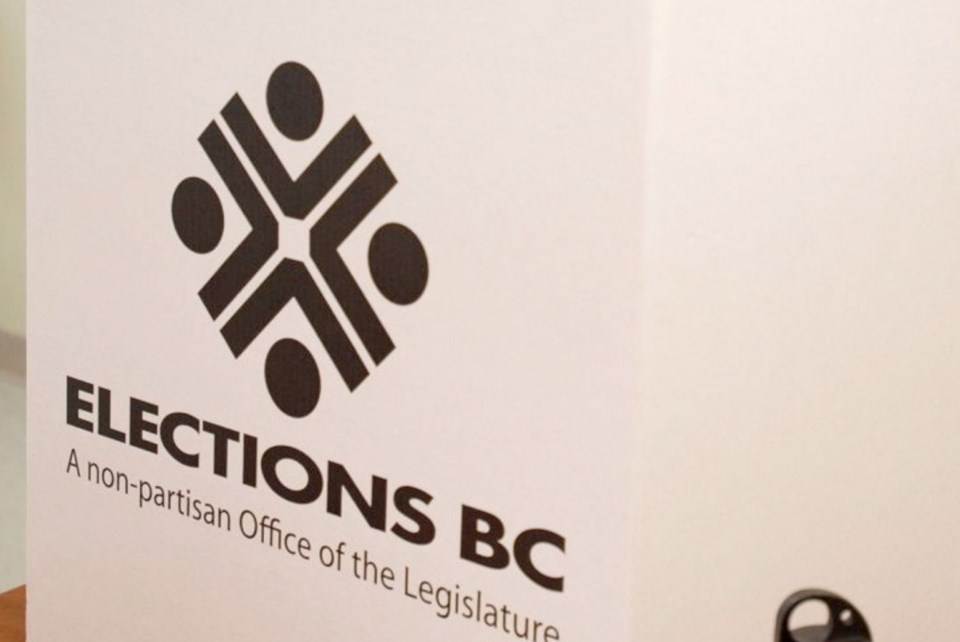 There are some ongoing costs attached to the NDP government’s various electoral-reform initiatives, and a lot of them are piling up in Elections B.C.’s budget.
There are some ongoing costs attached to the NDP government’s various electoral-reform initiatives, and a lot of them are piling up in Elections B.C.’s budget.
The independent office got its $10.4-million operating budget approved last month by the legislature’s finance committee. It also won approval for another $3.4 million in event-related expenditures in the coming fiscal year. But the office served notice it would need more money to cover other new functions, once the costs are figured out.
The increase is needed to cover additional work the office is taking on as a result of campaign-finance reform and the upcoming referendum on changing the voting system to some kind of proportional-representation model.
Those costs are on top of the hidden cost of minority government. Elections B.C. is spending much more than it normally would in the year after an election to keep the systems at a much higher degree of readiness. The NDP holds power by virtue of an agreement with the three-member Green caucus. Any loss of a confidence vote could trigger an immediate election. That would triple the budget right away, as the May election cost $36.5 million.
The office’s budget submission said Elections B.C. “will ensure a full team of district electoral officers and deputies is appointed, and directed to carry out readiness preparations as required. We must ensure that information systems and election supplies are ordered, stocked in the warehouse, and are ready to be deployed throughout the province.”
The office budgeted $1.7 million for preparedness in the coming year. Some of it is for costs that would be incurred in any event, but are being budgeted much earlier. But about $850,000 of it is from additional expenses attributed to the minority situation and the need to keep various systems ready and a core group of returning-office staff on hand and ready. The readiness budget for the years after is yet to be determined.
Elections B.C. also outlined $1.7 million in expected new costs to administer new campaign-financing restrictions in the local elections in November.
Legislation in the fall banned union and corporate donations in local politics as well as provincial. It also imposed a $1,200 limit on individual donations in local election campaigns. That requires Elections B.C. to manage financing regulations and third-party advertising restrictions for more than 257 jurisdictions. It involves reviewing disclosure statements from about 3,600 candidates, organizations and sponsors.
The finance committee, which normally pares down the budget requests from the independent offices such as the auditor general and the ombudsperson, approved Elections B.C.’s budget unchanged. It amounts to a 7.4 per cent budget hike, made up of $10.4 million in operating costs, $3.4 million in event-related spending and $700,000 in capital costs in each of the next three years.
And there’s more to come. The committee recognized some supplementary requests for more money will be arriving soon. The budgeting process took place while some of the electoral-reform bills were being debated. Now that they’re passed, the cost implications are being worked out, and Elections B.C. will be asking for more money.
Chief electoral officer Keith Archer told the committee that supplementary funding will be needed for the office to deal with the ban on union and corporate donations. That bill came with a surprise twist — taxpayer financing of political parties for an introductory four-year period. Elections B.C. will be required to administer that provision. It’s also gearing up for the imminent Kelowna West byelection, required to fill the seat vacated by former premier Christy Clark. Byelections cost about $650,000 to run.
The biggest additional budget request still to come is for the cost of administering the mail-in ballot referendum on proportional representation. When the attorney general’s ministry establishes regulations for that vote, to be held next November, Elections B.C. will submit a request for more money to run it. The last mail-in referendum was in 2011 on the harmonized sales tax and cost about $8 million.



